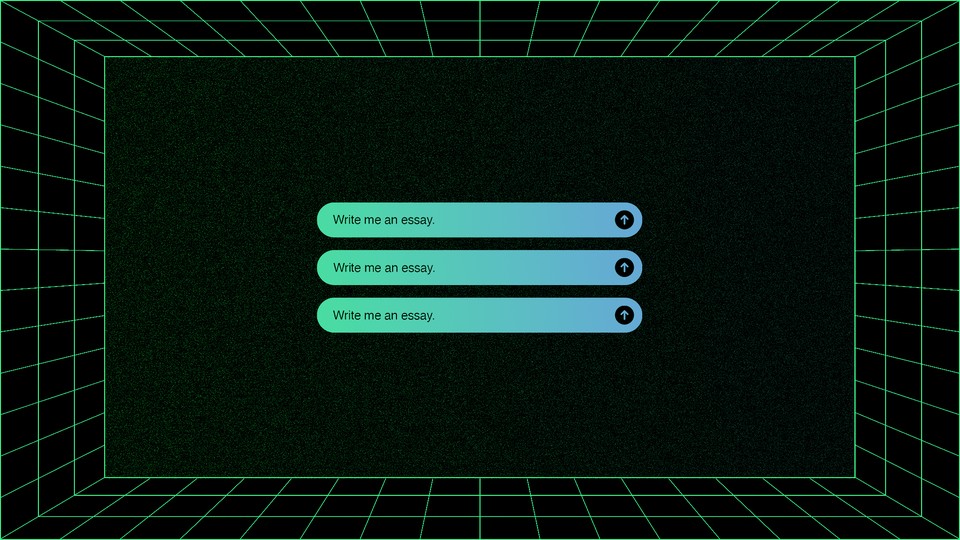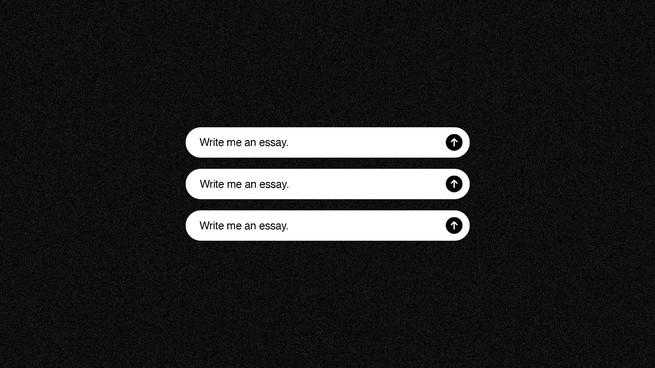Another Disastrous Year of ChatGPT School Is Beginning
4 min read
This is Atlantic Intelligence, a newsletter in which our writers help you wrap your mind around artificial intelligence and a new machine age. Sign up here.
Year three of AI college is about to begin, and instructors across the country still seem to have no clue how to handle the technology: no good way to stop students from using ChatGPT to write essays, and no clear way to instruct students on how AI might enhance their work. Meanwhile, more and more teachers seem to be turning to large language models to help them grade and give feedback. “If the first year of AI college ended in a feeling of dismay, the situation has now devolved into absurdism,” my colleague Ian Bogost wrote in a recent story for The Atlantic. One writing professor Ian spoke with said that AI had ruined the trust he once had in his students and that he’s ready to quit the profession altogether. “I have loved my time in the classroom, but with ChatGPT, everything feels pointless,” he said.
The way forward, Ian suggests, might be not in trying to patch up the flaws AI is exposing, but in reimagining teaching and learning in higher education. I recently touched base with Ian, who is himself a professor of media studies and computer science at Washington University, to follow up on his story. Even before generative AI, many of the types of papers that college courses assign seemed pointless, he told me—instructors ask students to write “a bad version of the specialized kind of written output scholars produce.”
Perhaps, then, universities ought to try a different form of instruction: assignments that are more creative and open-ended, with a more concrete link to the world outside academia. Students “might be told to write a paragraph of lively prose, for example, or a clear observation about something they see,” Ian wrote in his story, “or some lines that transform a personal experience into a general idea.” Maybe, in the very long term, the shock of generative AI will actually help higher education blossom.

AI Cheating Is Getting Worse
By Ian Bogost
Kyle Jensen, the director of Arizona State University’s writing programs, is gearing up for the fall semester. The responsibility is enormous: Each year, 23,000 students take writing courses under his oversight. The teachers’ work is even harder today than it was a few years ago, thanks to AI tools that can generate competent college papers in a matter of seconds.
A mere week after ChatGPT appeared in November 2022, The Atlantic declared that “The College Essay Is Dead.” Two school years later, Jensen is done with mourning and ready to move on. The tall, affable English professor co-runs a National Endowment for the Humanities–funded project on generative-AI literacy for humanities instructors, and he has been incorporating large language models into ASU’s English courses. Jensen is one of a new breed of faculty who want to embrace generative AI even as they also seek to control its temptations. He believes strongly in the value of traditional writing but also in the potential of AI to facilitate education in a new way—in ASU’s case, one that improves access to higher education.
Read the full article.
What to Read Next
- ChatGPT will end high-school English: Just after ChatGPT emerged nearly two years ago, Daniel Herman foresaw these very problems. “The arrival of OpenAI’s ChatGPT, a program that generates sophisticated text in response to any prompt you can imagine, may signal the end of writing assignments altogether,” he wrote in an article for The Atlantic.
- Neal Stephenson’s most stunning prediction: Tech luminaries have long predicted that computer programs could act as personal tutors—but today’s generative AI isn’t up to the task. “We’ve already seen examples of lawyers who use ChatGPT to create legal documents, and the AI just fabricated past cases and precedents that seemed completely plausible,” the science-fiction author Neal Stephenson told me in February. “When you think about the idea of trying to make use of these models in education, this becomes a bug too.”
P.S.
August may be ending, but in many parts of the United States, it feels like the summer heat never will. (Perhaps you saw articles this week about “corn sweat.”) It may be time to consider a neck fan. “The longer I wear my neck fan, the easier it is to imagine a future in which neck fans are as much part of the summer as sunglasses and flip-flops,” Saahil Desai wrote in a story on the new gadgets earlier this month.
— Matteo



